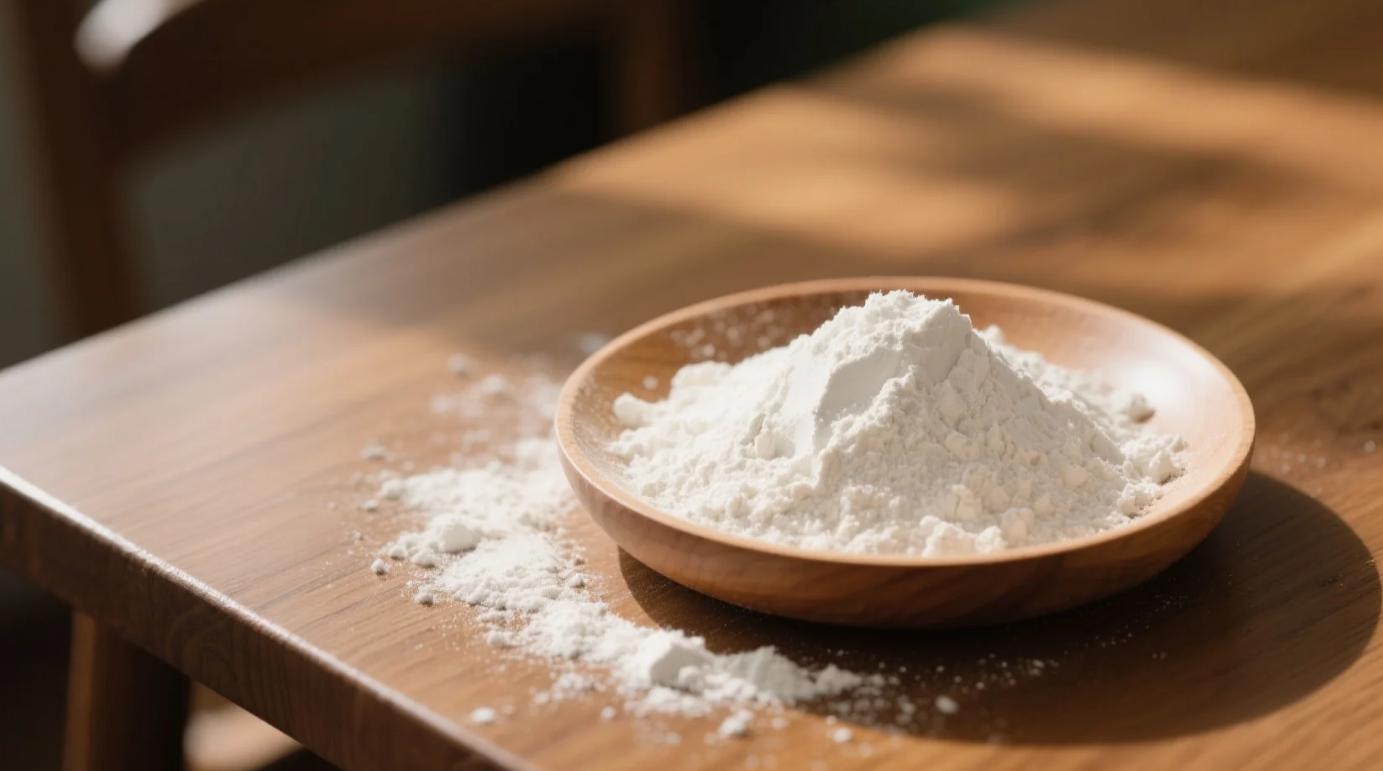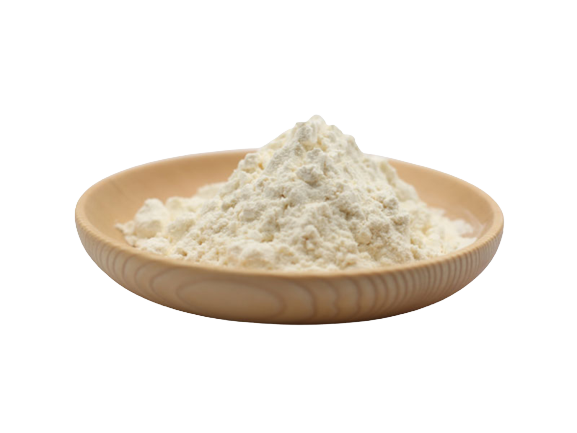Inulin Unveiled: Not a Sugar, Not a Fake
Inulin is a natural soluble fiber found in chicory root, Jerusalem artichokes, and dandelion greens. Though often labeled as a “sweetener,” organic inulin is not a sugar—nor is it artificial. It’s a prebiotic carbohydrate with a mildly sweet taste (10% the sweetness of sugar) that feeds gut bacteria. Let’s debunk the myth and explore why inulin is a fiber first, sweetener second.

Sugar vs. Inulin: The Molecular Face-Off
| Property | Sugar (Sucrose) | Organic Inulin |
|---|---|---|
| Chemical Structure | Disaccharide (glucose + fructose) | Polysaccharide (fructose chains) |
| Calories | 4 kcal/g | 1.5 kcal/g (fermented in the colon) |
| Sweetness | 100% | 10% |
| Digestion | Absorbed in the small intestine | Fermented in the large intestine |
| Glycemic Index | 65 | 0 (no blood sugar impact) |
Key Takeaway: Inulin is a fiber that mimics mild sweetness—not a sugar substitute.
Why Do People Call Inulin a “Fake Sugar”?
- Marketing Hype: Brands promote inulin as a “low-calorie sweetener” to appeal to keto/diabetic shoppers.
- Texture Trickery: Inulin adds bulk and mouthfeel to sugar-free products (protein bars, shakes), mimicking sugar’s texture.
- Sweet Synergy: Often blended with stevia or monk fruit to enhance sweetness without carbs.
But Here’s the Truth:
- Inulin’s primary role is prebiotic, not sweetening.
- Calling it a “fake sugar” undersells its gut health benefits.
The Organic Edge: Why Source Matters
Conventional inulin (often from genetically modified chicory) may carry hidden risks:
- Glyphosate Residues: Non-organic chicory crops are sprayed with herbicides.
- Chemical Extraction: Harsh acids used to isolate inulin damage its prebiotic properties.
Organic Inulin Guarantees: ✅ Non-GMO Sourcing: From pesticide-free chicory or Jerusalem artichokes.
✅ Enzymatic Extraction: Preserves fiber integrity and microbial benefits.
✅ No Bleaching Agents: Unlike some refined inulin powders.
The Downsides: When Inulin Falters
1. Digestive Drama
- Gas and Bloating: 30% of people experience discomfort at doses >10g/day.
- FODMAP Alert: Inulin is a high-FODMAP fiber, triggering symptoms in IBS sufferers.
2. Baking Limitations
- No Caramelization: Can’t replace sugar in cookies or caramel sauces.
- Gritty Texture: Overuse in protein bars feels sandy.
3. Flavor Faux Pas
- Bitter Aftertaste: Inulin from chicory can taste earthy, clashing with delicate desserts.
Inulin vs. Fake Sugars: A Functional Comparison
| Sweetener | Calories | Gut Health | Blood Sugar | Aftertaste |
|---|---|---|---|---|
| Organic Inulin | 1.5 kcal/g | ✅ Prebiotic | Neutral | Earthy |
| Aspartame | 0 kcal/g | ❌ | Neutral | Metallic |
| Erythritol | 0.2 kcal/g | ❌ | Neutral | Cooling |
| Stevia | 0 kcal/g | ❌ | Neutral | Bitter |
Winner for Gut Health: Inulin. Winner for Sweetness: Stevia.
How to Use Organic Inulin Wisely
- Prebiotic Boost: Add 5g to smoothies or oatmeal daily.
- Sugar Reduction: Replace 10% of sugar in baked goods with inulin (retains moisture).
- Synergy Strategy: Blend with monk fruit (1:3 ratio) to mask bitterness.
- Avoid High Heat: Use raw in recipes like no-bake energy balls.
Who Should Avoid Inulin?
- IBS/SIBO Patients: High-FODMAP fibers worsen symptoms.
- Low-Carb Purists: Inulin is a carb (though non-digestible).
- Sweetness Seekers: Too weak to replace sugar fully.
The Verdict: Fiber First, Sweetener Second
Organic inulin is not a fake sugar—it’s a prebiotic fiber with incidental sweetness. While it can’t replicate sugar’s culinary magic, its gut-nourishing powers make it a standout for health-conscious foodies. Just don’t expect it to caramelize your crème brûlée.
Nourish your microbiome. Sweeten with intention.
Related Products
Organic Monk Fruit Extract Powder
Zero-Calorie Natural Sweetener for Clean-Label Food, Beverage & Supplement Applications
Organic Inulin
Premium Prebiotic Fiber for Nutraceuticals, Food & Beverage Industries

